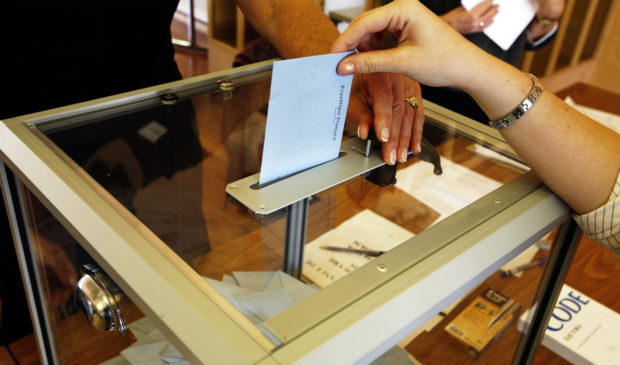Newsletter Signup
The Austin Monitor thanks its sponsors. Become one.
Most Popular Stories
- Austin opens new affordable housing development in Southeast Austin
- Landmark commission says goodbye to Nau’s Enfield Drug
- Congress Avenue transformation plan gets support from Urban Transportation Commission
- After a decline last year, Travis County homeowners should expect a return to rising property taxes
- Ryan Alter and colleagues propose revision of boards and commissions
-
Discover News By District

Austinites may soon be able to directly support candidates through voucher donations
Thursday, February 15, 2018 by Jessi Devenyns
When it comes to political campaigning, it’s no secret that Austin has funding inequalities. Some fear these funding inequalities have fostered a lack of engagement among voters that has helped lead to the city’s notorious low turnout at the polls.
Responding to the statistics, City Council charged the Charter Review Commission with determining the most equitable and effective public financing option to empower more voters to vote with their wallets as well as their voices. After a meeting with leading municipal campaign reformation expert Paul Ryan and an impassioned discussion, vouchers won.
In an effort to offer lower-income Austinites more agency in the political process, commissioners voted on Feb. 12 to move forward with the proposed voter public voucher program and ask the Campaign Finance Committee to present a detailed financial and logistical description of what the implementation of this project would look like. The commissioners requested that the report be available by their Feb. 26 meeting.
“We believe that this is the time for Austin to join Seattle,” said Frances McIntyre of the League of Women Voters. “The proof is in the pudding and Seattle has proved that it’s yummy and it works.”
The proposed voucher system is a public financing system that provides a “coupon” to individuals to donate to a candidate who can then redeem the voucher for campaign funds. Seattle was the first city in the U.S. to pass a voucher program through a ballot initiative in 2015, and election results have shown that not only do candidates who represent marginalized populations make it to the ballot, but they win. After Seattle implemented their voucher program, in a citywide election, all of the voucher candidates won.
Unsurprised by the data, Commissioner Ingrid Weigand noted, “I would imagine in the long run (a voucher program) would show an increase in participation because people tend to pay attention when they spend money.”
Commissioner Tane Ward explained the importance of the source of candidates’ funding. “Elected officials are beholden to people who fund their campaigns,” he said. “We want more people invested in the way in which this city functions.”
Commissioner Matt Hersh disagreed with the initiative on the whole. “I do think that we should have public funding,” he said. “This is really not politically viable at this time.”
He placed particular emphasis on the question of viability of a voucher program and noted that there are other options for public financing including block grants and small donor matching programs.
Admitting his uncertainty, Commissioner Jeff Smith expressed that he was hesitant to spring the idea on the public for a vote without first having studied the long-term efficacy of the program and then mounting a public education initiative.
Although he conceded that public education was paramount to ensuring the implementation of a public funding system, Commissioner Fred Lewis said that the notion that Council is going to study the effects of Seattle’s voucher system “is hopelessly naive.”
As it stands, August would be the earliest date to begin drumming up public engagement on the issue if Council gives an official recommendation to place the voucher program on the ballot. Once it is given, the city then has until the November elections to adequately educate the public on the initiative.
“I think the public deserves a chance to weigh all of these things. Not a committee of four people,” explained Smith. However, time constraints and the relative affordability of the program – $3 million on a mayoral year and $1 million on non-mayoral years according to Ward – persuaded the commissioners to take another step toward defining this program to put it up for a vote come November.
As the city’s public voucher program officially moved closer to implementation, Hersh noted, “We’re 11 not-super-qualified people deciding the fate of Austin elections.”
Photo by Rama – Own work, CC BY-SA 2.0 fr, Link
The Austin Monitor’s work is made possible by donations from the community. Though our reporting covers donors from time to time, we are careful to keep business and editorial efforts separate while maintaining transparency. A complete list of donors is available here, and our code of ethics is explained here.
You're a community leader
And we’re honored you look to us for serious, in-depth news. You know a strong community needs local and dedicated watchdog reporting. We’re here for you and that won’t change. Now will you take the powerful next step and support our nonprofit news organization?








